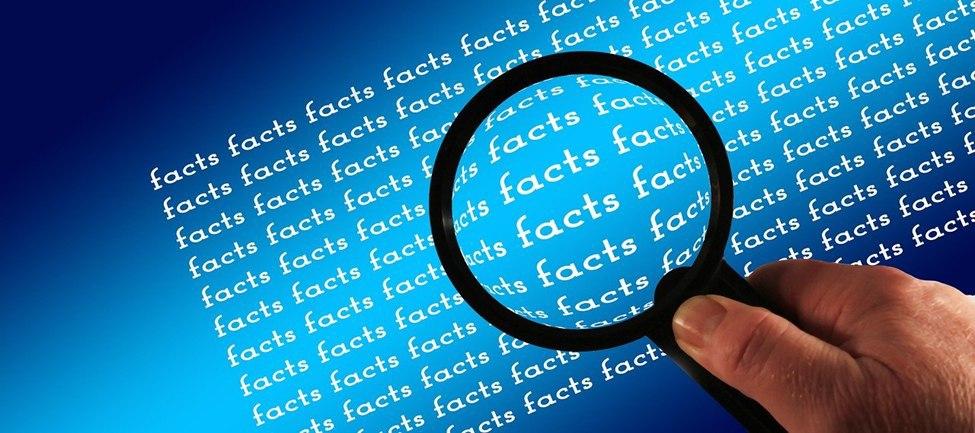While CBD oils and products might be abundantly available, there’s still plenty of misinformation and confusion about what CBD actually is and whether or not it’s legal, etc. Here, we’ll cover some interesting facts about CBD that you might have never known! Keep reading to learn more about this beneficial and versatile compound.
It’s Completely Legal (Finally)
CBD is extracted from hemp, which is a strain of the Cannabis plant. Yes, that’s the same plant that also produces marijuana. Marijuana and hemp are close relatives, but what makes them different is their THC content. THC is another chemical compound, but it produces a “high”, whereas CBD does not. In fact, CBD can help counteract the high produced by THC.
Since 1970, Cannabis and cannabis-based products, including hemp-derived CBD, have been considered illegal at the federal level; listed as a controlled substance according to the law. In 2018, new legislation passed that finally removed hemp/CBD from this list and made it legal to grow and cultivate. Of course, there were certain restrictions put in place.
Most notably is the 0.3% rule. For Cannabis plants to be considered industrial hemp, they must contain 0.3% or less THC on a dry-weight basis. This is where CBD is extracted from and made into CBD oil.
CBD oil cost will differ among brands based on the quality of the hemp from which its derived, as well as the extraction method used to produce the extract. Higher quality usually means a higher cost, but if you want the full CBD experience, this is the way to go.
CBD Oil Could Actually Help Treat Cancer Symptoms
Treating cancer is a lengthy process, and chemotherapy and radiation treatments can cause plenty of pain, discomfort, and disruption to bodily functions such as appetite. CBD has shown great promise in certain areas of cancer treatment, most notably mitigating certain severe symptoms.
CBD is a natural painkiller and anti-inflammatory compound. Patients undergoing chemotherapy often experience extreme pain, and CBD can help reduce it and make things more comfortable.
CBD also seems to help stimulate appetite, which can be lost during cancer treatments. Not being able to eat is all but debilitating for cancer patients, but a quick CBD dose can help reverse this issue and make the patient feel hungry once more.
While it’s not clear to what extent CBD may help with cancer-related issues, there seems to be some promise in the preliminary results. We’re anxiously awaiting the results of the next CBD cancer study to see just how much it can help.
CBD Is One of 113 Cannabinoids in Cannabis
CBD is considered to be a Cannabinoid and is actually one of 113 similar Cannabinoids found in the Cannabis plant. These chemicals occur naturally and the body actually produces similar molecules known as endocannabinoids (which just means Cannabinoids inside the body).
Each Cannabinoid interacts with the body in a specific way and produces its own effects or none at all. We’re still not entirely sure just how much Cannabinoids affect us, as the ECS, or endocannabinoid system was only just discovered about 30 years ago.
CBD Doesn’t Make You High
CBD is closely related to its psychoactive cousin, THC. Many people assume that these two produce the same effect, given that they’re derived from pretty much the same source. This is a falsehood, and CBD won’t get you high at all. As mentioned earlier, this confusion was probably a major factor in CBD and hemp being listed as controlled substances.
CBD and THC do share some similar effects, however. Each of these compounds are natural painkillers, reduce inflammation, and can stimulate appetite, among other things.
CBD Doesn’t Actually Bind to Cannabinoid Receptors
The ECS contains cannabinoid receptors, which THC binds to and activates a response. These receptors stimulate the ECS to take action (triggering hunger, mood changes, etc.). The interesting thing about CBD is that it doesn’t actually bind to a receptor, and we’re still not entirely sure how it interacts with the ECS.
Chemical or electrical signals could be what activates the ECS on behalf of CBD, but more research is needed to be sure. What we do know is that CBD interacting with our ECS doesn’t produce any major negative side-effects. You might experience dry mouth, fatigue, irritation, or even diarrhea from taking CBD, but that’s about the extent of the negative effects.
Most users don’t report any side-effects at all, and as you’ll see in the next section, there’s no such thing as a “CBD overdose”.
You Can’t Overdose on CBD
CBD is non-addictive and you simply can’t overdose on it. You can take too much and perhaps produce a few of the negative side-effects we already mentioned, but as far as dangerous overdoses are concerned, you’re not going to experience one from taking too much CBD.
CBD Can Be Used to Treat Addiction
Speaking of addiction, CBD is actually known to have positive effects on those suffering from addiction. When the brain becomes chemically addicted to a substance, it needs the substance to function, and CBD seems to block certain receptors and mitigate the need for the addictive substance.
While some studies have produced positive results, others have been inconclusive. As we learn more about CBD and how it interacts with our nervous system, we’ll learn more about its potential as an anti-addiction agent. Until then, CBD oil and other products are still being used by addicts to help with symptoms and fight off the need for their addictive substance. Here’s to hoping CBD works as an anti-addiction product!
